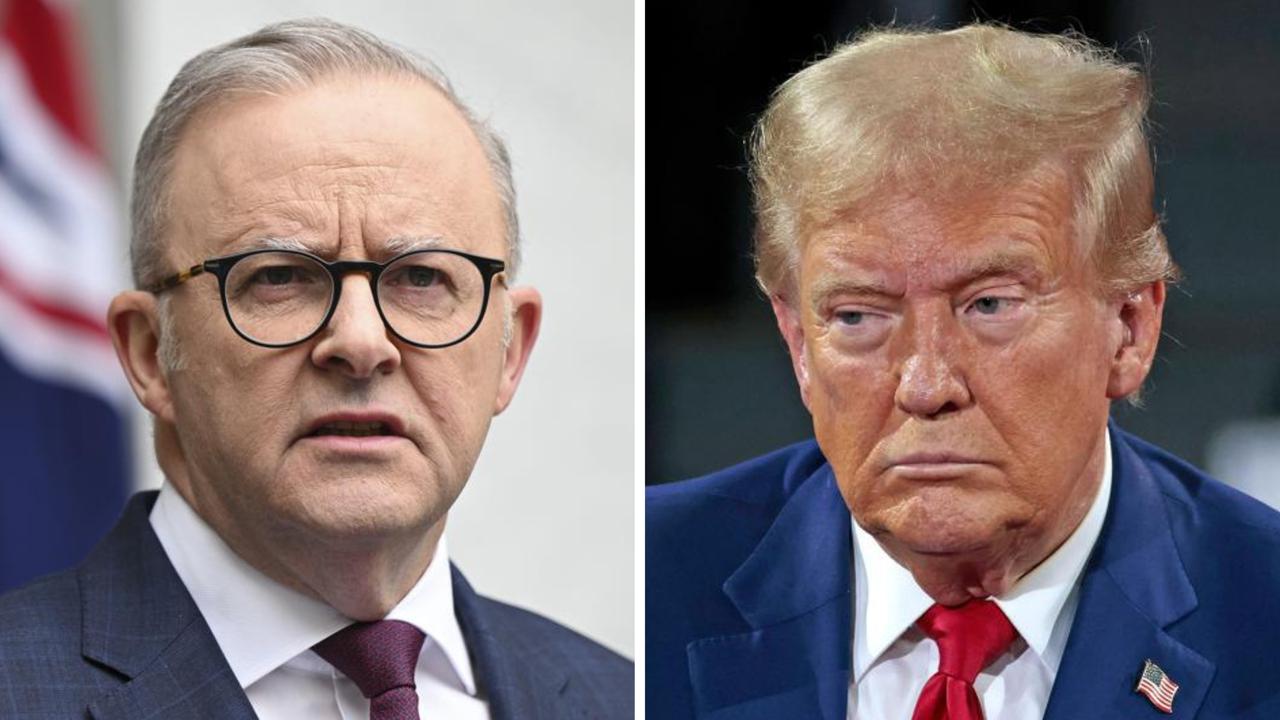US imposes sanctions on Russia over cyber-attacks, election interference
Joe Biden has made good on his promise to “punish” Russia, imposing sanctions on the country and expelling 10 diplomats.
Leaders
Don't miss out on the headlines from Leaders. Followed categories will be added to My News.
The US announced sanctions and the expulsion of 10 Russian diplomats on Thursday (local time) in retaliation for what Washington says is the Kremlin’s election interference, a massive cyber attack and other hostile activity.
The measures are aimed at deterring “Russia’s harmful foreign activities”, the White House said on Thursday.
US President Joe Biden’s broadside against Russia came the same week as he offered to meet President Vladimir Putin for their first summit — a meeting US officials say remains “vital” so that the two countries can de-escalate.
In an executive order, Mr Biden widened restrictions on US banks trading in Russian government debt, expelled 10 diplomats who include alleged spies, and sanctioned 32 individuals accused of meddling in the 2020 presidential election.
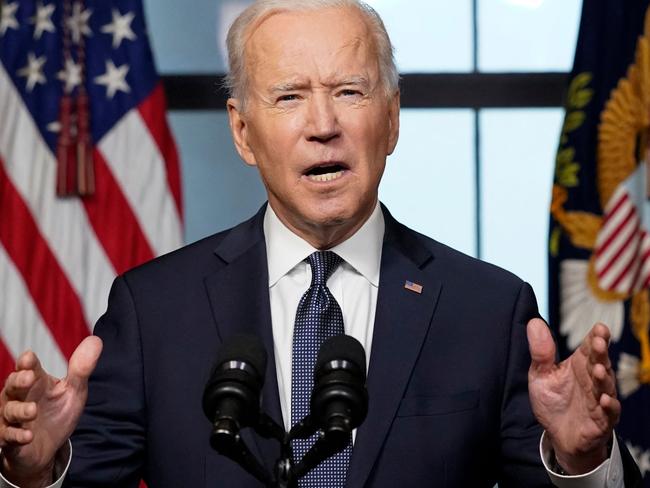
Mr Biden’s order “sends a signal that the United States will impose costs in a strategic and economically impactful manner on Russia if it continues or escalates its destabilising international action,” the White House said in a statement.
The Russian government has denied the allegations and called any new sanctions “illegal”.
The Kremlin said on Thursday that sanctions would not “help” momentum for a summit and once the White House unveiled its measures, the Russian foreign ministry warned a Russian response was “inevitable”.
“The United States is not ready to come to terms with the objective reality that there is a multipolar world that excludes American hegemony,” spokeswoman Maria Zakharova said.
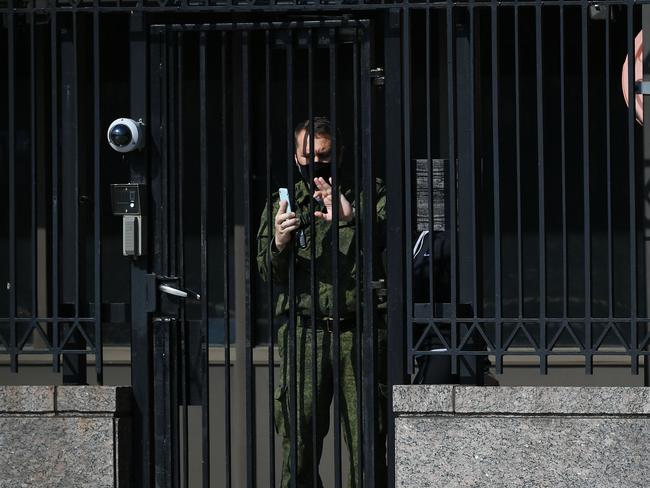
The latest tension comes against a backdrop of long-term anger in Washington at Russian election meddling and worries both in the United States and its European allies over Russia’s recent troop build up on the border of Ukraine.
The almost fatal poisoning and ongoing imprisonment of Alexei Navalny, who is effectively the last open political opponent to Mr Putin, has further spiked concerns in the west.
A senior US official, who spoke on condition of anonymity, told reporters that Washington was ready to impose more measures if necessary and also that additional actions are already in place but “will remain unseen”.
Despite this, the official stressed that Washington is seeking de-escalation and wants the proposed Biden-Putin summit to go ahead.
“We do not desire a downward spiral,” the official said. “In the coming months it will be vital for the two leaders to sit down to discuss the full range of issues facing our relationship.”
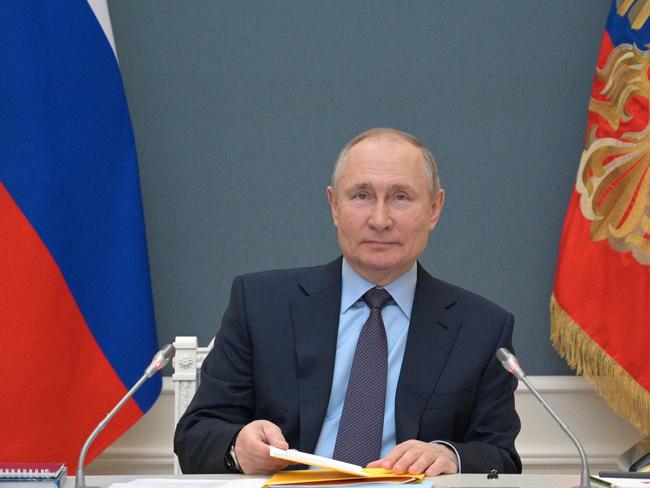
ALLIES BACK UP US
The White House statement listed in first place Moscow’s “efforts to undermine the conduct of free and fair democratic elections and democratic institutions in the United States and its allies and partners.”
This referred to allegations that Russian intelligence agencies mounted persistent disinformation and dirty tricks campaigns during the 2016 and 2020 presidential elections, in part to help former President Donald Trump’s candidacies.
The White House said the sanctions likewise respond to “malicious cyber activities against the United States and its allies and partners,” referring to the massive so-called SolarWinds hack of US government computer systems last year.
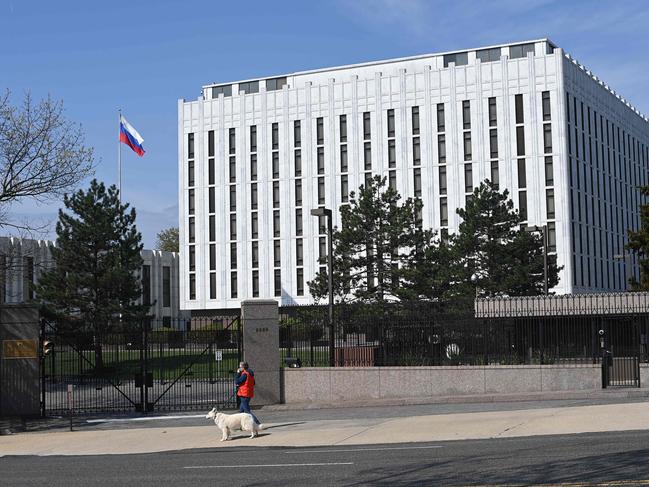
The statement also called out Russia’s “targeting” of dissidents and journalists on foreign soil and undermining of security in countries important to US national security.
In addition, the Department of Treasury, together with the European Union, Australia, Britain and Canada, sanctioned eight individuals and entities associated with Russia’s occupation of Crimea in Ukraine.
US allies responded with a carefully choreographed show of support. In Brussels, the NATO military alliance said US allies “support and stand in solidarity with the United States, following its 15 April announcement of actions to respond to Russia’s destabilising activities.” NATO members cited a “sustained pattern” of Russian hostility. “We call on Russia to cease immediately its destabilising behaviour, and to uphold its international obligations,” they said.
The European Union issued a statement expressing “solidarity with the United States on the impact of malicious cyber activities, notably the SolarWinds cyber operation.”
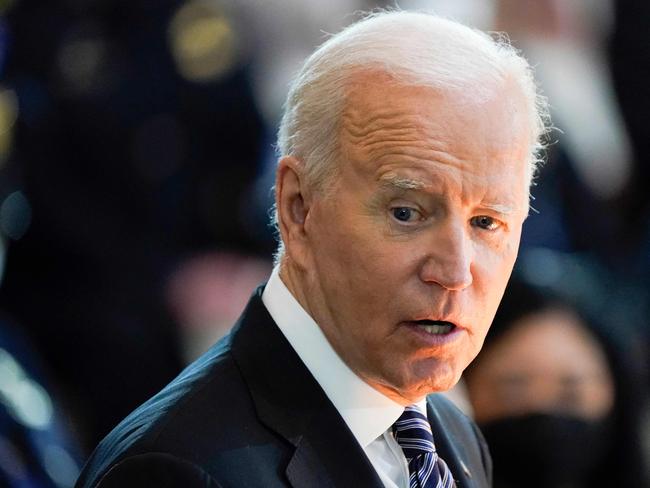
AUSTRALIA TO WITHDRAW TROOPS FROM AFGHANISTAN
Meanwhile, Australia is set to follow in America’s footsteps and will withdraw troops from Afghanistan.
“Today the Government is announcing that Australia will conclude the drawdown of our contribution to the NATO-led Resolute Support mission in Afghanistan,” Prime Minister Scott Morrison said during a press conference yesterday.
“In line with the United States and other allies and partners, the last remaining Australian troops will depart Afghanistan in September 2021.”
Currently, there is approximately 80 military personnel in Afghanistan representing Australia.
The news came following President Joe Biden’s announcement that the US would also withdraw troops.
“Over the last 20 years, Australia has been a steadfast contributor to the fight against terrorism in Afghanistan. Australia has fought alongside coalition and Afghan partners to degrade the capabilities of terrorist organisations, including al-Qaeda,” Mr Morrison said, tearing up before reading out the names of Australians who had lost their lives while fighting.
Since 2001, 41 Australians have lost their lives while serving in Afghanistan.
BIDEN ANNOUNCES US WITHDRAWAL
On Wednesday, Mr Biden announced that it was “time to end” America’s longest war with the unconditional withdrawal of troops from Afghanistan, where they have spent two decades in a bloody, largely fruitless battle against the Taliban.
But Mr Biden warned the Taliban that he would hold them accountable on Afghanistan after the US exit and pressed nations including Pakistan to play supportive roles.
“We will hold the Taliban accountable for its commitment not to allow any terrorists to threaten the US or its allies from Afghan soil. The Afghan government has made that commitment to us as well,” Biden said in a speech announcing an end to America’s longest war.
“We will ask other countries in the region to support Afghanistan, especially Pakistan, as well as Russia, China, India and Turkey.”
WATCH THE VIDEO:
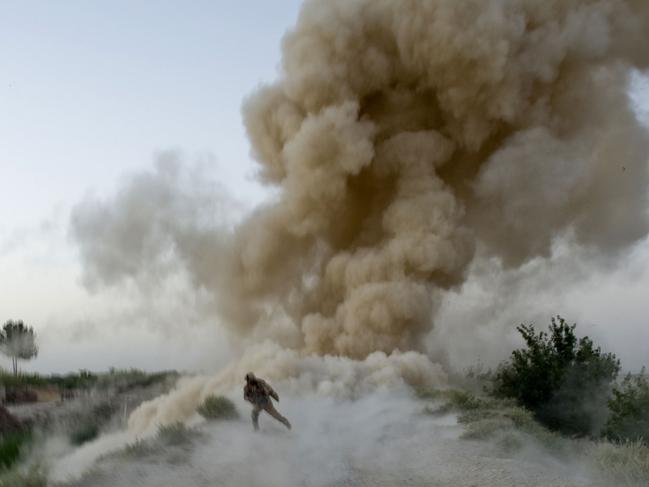
Dubbed the “forever war,” the US military onslaught in Afghanistan began in response to the September 11, 2001 terrorist attacks against the United States.
Now, 20 years later — after almost 2,400 US military and tens of thousands of Afghan deaths — Mr Biden is naming September 11 as the deadline by which the last US soldiers will have finally departed.
The war is at best at a stalemate. The internationally backed government in Kabul has only tenuous control in swathes of the country, while the Taliban are growing in strength, with many predicting the insurgency will seek to regain total power once the government’s US military umbrella is removed.
In a speech later on Wednesday, Mr Biden will tell Americans that it’s time to accept the reality that there’s no alternative.
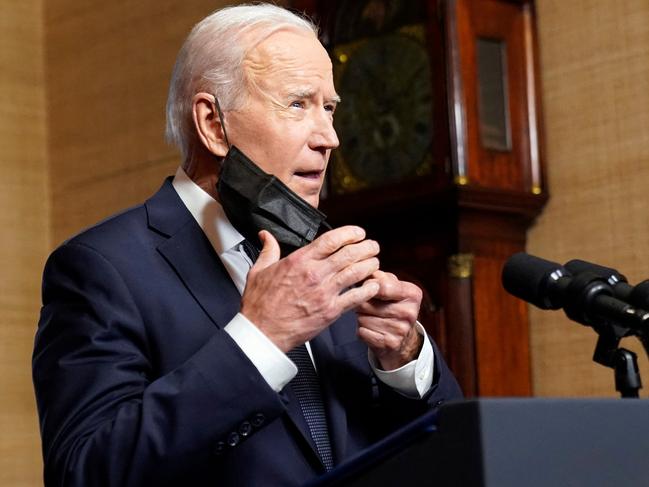
“We cannot continue the cycle of extending or expanding our military presence in Afghanistan hoping to create the ideal conditions for our withdrawal, expecting a different result,” he was to say, according to excerpts released ahead of his speech.
“I am now the fourth American president to preside over an American troop presence in Afghanistan. Two Republicans. Two Democrats,” he said. “I will not pass this responsibility to a fifth.”
However, there was immediate criticism from some quarters that the United States is abandoning the Afghan government and encouraging jihadist insurgencies.
“We’re to help our adversaries ring in the anniversary of the 9/11 attacks by gift wrapping the country, and handing it right back to them,” senior Republican Senator Mitch McConnell said.
Afghan president Ashraf Ghani insisted Wednesday after a phone call with Mr Biden that his forces are “fully capable” of controlling the country.
White House Press Secretary Jen Psaki also stressed that Washington expects the Taliban “to hold to their commitments” on keeping anti-US international jihadist groups out of Afghanistan once withdrawal is complete — something a senior administration official said would happen by September 11.
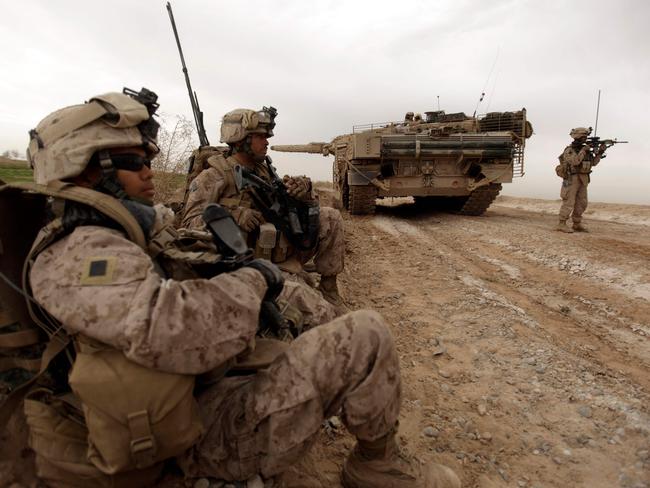
Mr Biden “has been consistent in his view that there’s not a military solution to Afghanistan, that we have been there for far too long,” Press Secretary Jen Psaki said Tuesday, without confirming the withdrawal date.
For Afghans the fighting will likely grind on. The official spoke shortly after US intelligence released a threat assessment report warning that the embattled Afghan government “will struggle” to hold off the “confident” Taliban if the US-led coalition withdraws.
The Trump administration reached a deal with the Taliban in February 2020 under which all US troops would leave by May 2021 in return for the insurgents’ promise not to back al-Qaeda and other extremists — the original reason for the 2001 invasion.
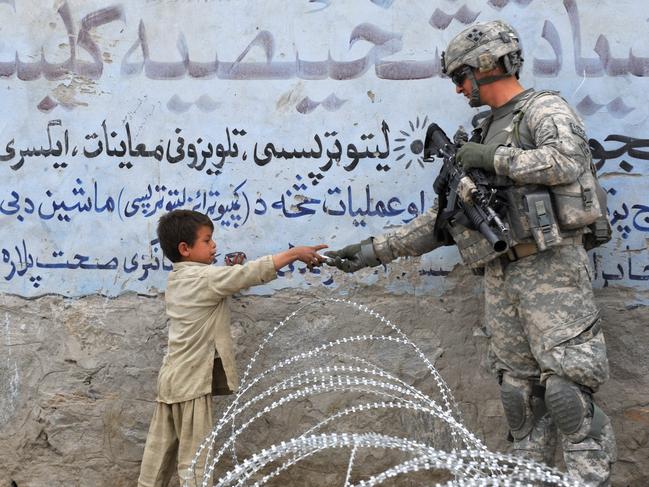
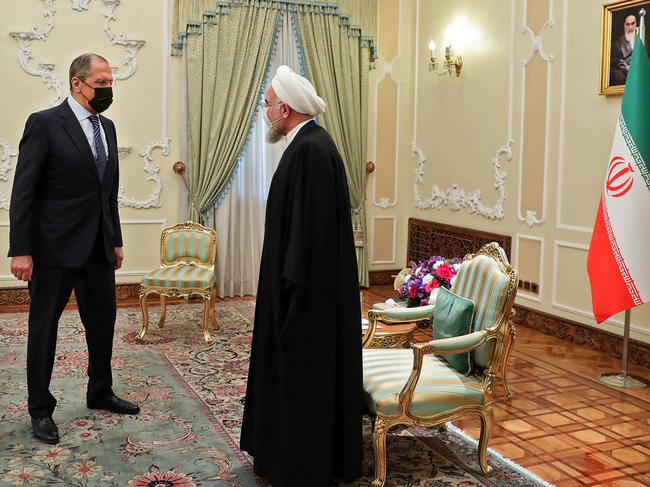
US COMMITS TO RENEW IRAN TALKS
The White House said Tuesday it remains committed to nuclear negotiations with Iran despite Tehran’s “provocative” statement that it will ramp up uranium enrichment.
“We are certainly concerned about these provocative announcements,” Mr Biden’s press secretaryMs Psaki, told reporters.
“We believe that the diplomatic path is the only path forward here and that having a discussion, even indirect, is the best way to come to a resolution.”
Iran announced it was accelerating its production of enriched uranium after damage was inflicted on the Natanz nuclear plant in a mysterious incident that Tehran blames on Israeli sabotage.
The incident has cast a shadow over attempts by Washington to negotiate a renewal of the so-called JCPOA deal, which brought Iran’s nuclear power industry under international scrutiny but which Donald Trump abandoned in 2018.
Indirect talks between Washington and Tehran are underway in Vienna, and Psaki said she expects them to continue.
The six countries that negotiated the JCPOA with Iran should be “unified in rejecting” Iran’s threat to accelerate uranium enrichment, Psaki said.
However, it “underscores the imperative of returning to mutual compliance with the JCPOA,” she said, calling talks last week “constructive.” “While (talks) were difficult and while we expect this to be long, we expect and we have not been alerted of any change in planned attendance in meetings that will resume later this week.”
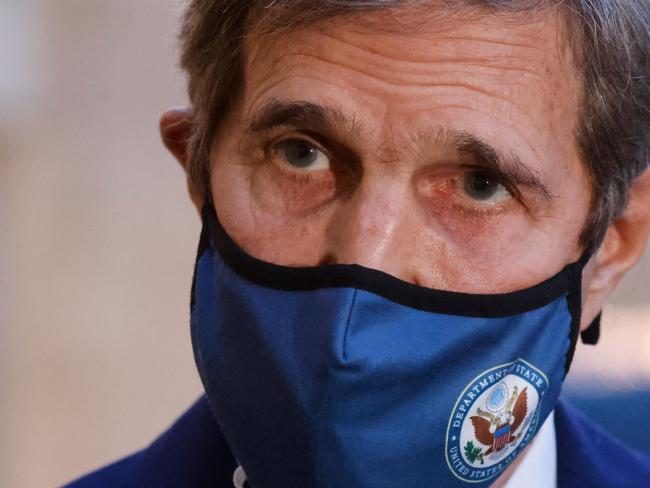
US ENVOY TO CHINA WILL TALK CLIMATE
US climate envoy John Kerry will visit China this week in the first trip there by the Biden administration, which says it will find areas of co-operation with Beijing despite soaring tensions on multiple fronts.
The former secretary of state will visit Shanghai as well as the South Korean capital Seoul on a trip starting Wednesday, the State Department confirmed.
His trip comes in preparation for President Joe Biden’s virtual climate summit next week to which the US leader has invited both Chinese President Xi Jinping and Russian President Vladimir Putin.
With global temperatures and natural disasters on the rise, Mr Biden has made climate a top priority, turning the page from his predecessor Donald Trump, who was closely aligned with the fossil fuel industry.
Mr Kerry noted that he worked closely with China as he negotiated the 2015 Paris climate accord — which Mr Biden has rejoined after Mr Trump pulled the United States out of it.
“We hope that China will come to the table and lead. President Xi has talked about leadership, about China’s role in this. We want to work with China in doing this,” Mr Kerry said in an interview with India Today.
No global solution is likely without both the United States and China, the world’s top two economies which together account for nearly half of the greenhouse gas emissions responsible for climate change.
China alone produces almost 30 per cent of carbon emissions, far more than any country, after decades of rapid industrialisation.
But Xi has promised that China’s emissions will peak by 2030, part of a major push to clean up the environment.
More Coverage
Originally published as US imposes sanctions on Russia over cyber-attacks, election interference
Read related topics:Joe Biden




